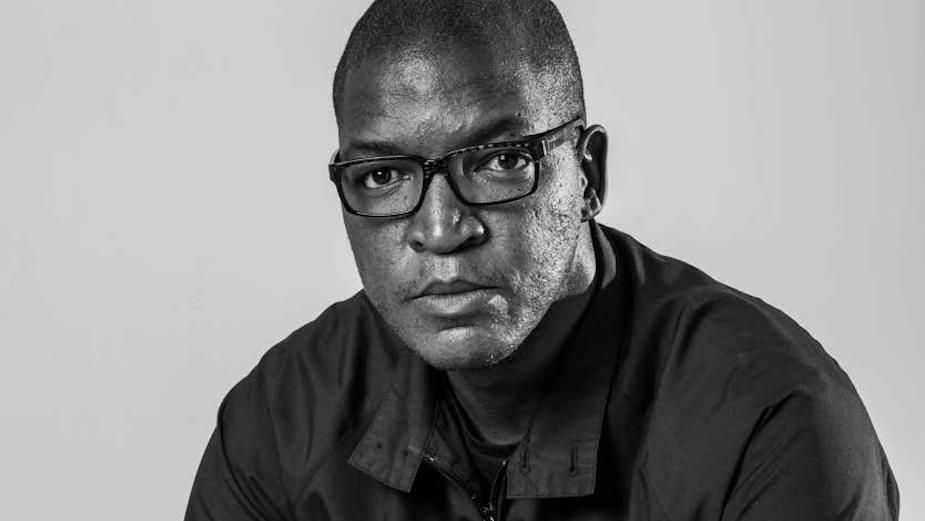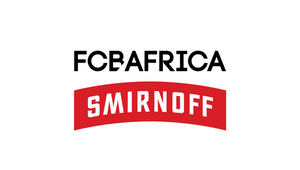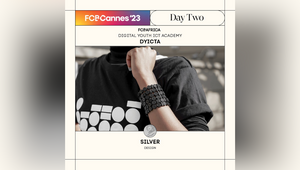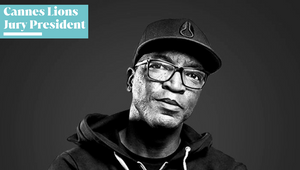
A Message to Young Black Creatives: “Don’t Ever Apologise for Being Who You Are. That’s Your Gift to This Industry”

2020 is not going to be a year that we forget anytime soon. It's been littered with events that will take a generation a lifetime to recover from. But what of events that generations of people are still recovering from to this day?
The intricacies of growing up Black in many of the world’s countries are as relevant today as they were many, many years ago when slavery existed and when people fought for apartheid to be recognised for what it was.
For FCB Joburg’s Tseliso Rangaka growing up in South Africa featured a childhood filled with challenges, he was told by teachers to strive to become a handyman or a gardener and working in the advertising industry was never an option for him. However when he was introduced to HerdBuoys, South Africa’s first Black-owned agency, Tseliso sat up a little taller and realised he’d found somewhere he could fit in.
Although his path forward has been fraught with moments of uncertainty, Tesliso is no doubt an inspiration to the next generation of Black creatives throughout the world. Here, in his own words, he tells LBB’s Natasha Patel about his journey and strive to create bridges between races instead of division.
LBB> What is the conversation in South Africa at the moment in relation to the Black Lives Matter movements?
Tseliso> Recent events in the USA have sparked perhaps the biggest global show of force against racism in recent memory. South Africa has a long and painful history dealing with this issue so we didn’t waste time lending our voices to the BLM outcry through social and broadcast media as well as other smaller forums.
LBB> What were your experiences with racism growing up?
Tseliso> How did racism not affect me is the more challenging question. Born in the ‘70s and growing up in the ‘80s meant racism was a fact of life for me. It was the air I breathed. The violence I witnessed. It seeped into everything.
The miseducation that was dished out to Black kids in schools, often accompanied by physical assault at the hands of Black teachers. The extreme fear of anyone in police or army uniform. Seeing grown men huddling in the backs of trucks among the other tools, while dogs rode shotgun. Realising that no one important looked anything like me or anyone I knew. Not God. Not Santa. Not a single person that the world treated with respect. That stays with you. It becomes your shadow for life. I’m fortunate not to have lost anyone close, to apartheid machinery. It was pretty awful. But there was always someone worse off.
LBB> And what impact did these experiences have on you getting into the industry?
Tseliso> Career choices were extremely limited for Black kids. We were taught to be gardeners and handymen by our teachers, while our parents pushed us to become teachers, lawyers, and doctors. That was the way out. “Study hard or dig trenches for the rest of your life” was the refrain from my parents. A career in advertising couldn’t have been further from my world. I simply didn’t know the industry existed. I discovered it by accident, like I imagine most people still do today. When I did find out about it, I fought hard to get in. First, to get into a school, then to land my first job as a copywriter.
LBB> When you were first making your way, were there any Black creative leaders for you to look up to?
Tseliso> When I was still in ad school, two Black account executives gave a talk about their agency HerdBuoys. It was the first Black owned agency in the country. I remember sitting there thinking, “I want to be like these guys”. That gave me the extra drive I needed to persist and get that certificate.
I then went for an interview at HerdBuoys and the creative director, who was white, didn’t hire me. I felt betrayed by those two. The reality was that the few Black leaders in the industry quickly became boardroom-bound businesspeople and the gatekeepers were not only white, they also didn’t get the memo, so to speak. The handful of leaders that took it upon themselves to actively bring young, Black talent in are the ones who helped evolve the ad industry here.
LBB> With that in mind, what’s the situation now when it comes to Black people being represented in agency leadership and creative leadership - and client-side too?
Tseliso> It’s a lot better than when I started. There’s lots to do still though. The average agency staff photo looks a lot more representative than was the case 20 years ago. The faces in boardrooms and agency management organograms are taking more time to reflect true diversity. Clients seem to be making better progress in this regard. While the majority of CEOs are still male and white, we are seeing a lot more transformation at marketing and brand management level.
There is a more deliberate effort to institutionalise anti-racism within FCB. This is from holding company level right down to individual agencies. As I write this, an email has just popped into my inbox from our group CEO with news of a Non-Discrimination and Anti-Racism policy, which is in effect henceforth. It feels like we may be turning a significant corner.
LBB> Are you able to tell us anything about the division between Black creative talent and white leadership?
Tseliso> I think people generally tend to gravitate to whom and what they know. That’s just human nature but that’s what makes the issue tricky. We have to go against our programming to overcome the racial divide in agencies. Most creative leaders are white and, through no malice on their part, will tend to favour ideas and people they are comfortable with.
Their in-agency friends will more likely be white and when they go home, they are far less likely to hang around Black people. There’s nothing wrong with that. However as creative leaders in South Africa, there should be a curiosity, obligation maybe, that compels them to open up their minds and lives to the people it is their vocation to connect with. The good ones get this.
LBB> Are clients asking about diversity and representation?
Tseliso> Yes, clients have begun to insist on it. This presents agencies with a Black creative scarcity problem. There simply aren’t enough to go around.
LBB> The South African ad industry has traditionally been massively unbalanced and unrepresentative, dominated by white people trying to sell in a country that is majority Black - do you think that unrepresentative makeup has limited the effectiveness of the advertising, if so how?
Tseliso> This has been the biggest barrier to creating work that truly resonates with consumers. Clients don’t trust agencies to unearth insights that lead to the kind of work that speaks to the majority of people in the country. This has led to an overreliance in testing and research. What typically survives this process are extremely safe, watered down ideas.
LBB> For non-South Africans what do we need to know to understand the particular context of racism in the South African creative industry?
Tseliso> The first thing to understand is that the way racism shows up in South African society has changed since apartheid was outlawed. We went from a country that was built and run on racial segregation to a nation without racists overnight. The face of racism is no longer outwardly brazen and audaciously entitled. It has now receded to manifest in little behaviours and attitudes. It is nuanced and micro-aggressive.
The second thing to understand, and this applies to the ad industry, is that our organisations have racism in their muscle memory. If we are not vigilant, the institutions slide back. We have to check ourselves against privilege and how it affects the dynamics in agencies. Do the Black creatives feel safe enough to present ideas their white CDs may not understand? Why is it that even when juniors earn the same, the white ones can afford a car and an apartment down the road from the office while their Black colleagues have to take three taxis to get home, 20km away? When Black people speak up about racism in our agencies, do we listen and correct or do we label them “angry Blacks” and work them out? It’s a complicated mess to untangle but one we have to keep working at.
LBB> There’s been a lot of movement in the US industry, the emergence of groups like Change the Lens and 600+ Rising – looking at all this activity, is there anything that you’d like the South African industry to borrow?
Tseliso> What I’m learning from those initiatives is that no one’s coming. We simply have to do this ourselves. The government and our agencies can only do so much. We have to stop vacillating between the extremes of victimhood and crippling entitlement, to fix what we can ourselves. What we have going is a sense of community outside of our respective agencies. We all have friends who are CEOs, film directors, creative directors and highly influential people in their fields. We should channel these connections into action and initiatives that will help the ad industry transform with the sincerity and urgency it needs to.
LBB> From experience speaking to South African ad folk, it seems that people are a lot more frank when it comes to talking about race with recent ads that kind of poke fun at divisions in society. Is that perception fair?
Tseliso> Talking about race has never been taboo here. It’s an inescapable fact about being South African. Black and white people have been affected by our shared history. We live and feel it differently but we all carry the scars and trauma. Talking about it openly is the only way to get to mutual understanding and healing. Personally, I think we could address it more directly in our work. There is still reluctance on the part of brands to do this. It’s seen as risky and there is truth in that. However, if we do it respectfully and with good intention, it will create more bridges than divisions.
LBB> Beyond race, South Africa is home to many diverse cultures too - how important are those cultural nuances, and is the industry trying to address representation on that front?
Tseliso> Absolutely. It’s perhaps been easier to tackle cultural and gender diversity. The creative industries have a long history of making strides in this space and South African advertising is no different. There is still a long way to go in addressing gender representation specifically though. This is nowhere near where it should be.
LBB> There were movements in 2016 after two Black Americans were killed outside the US Consulate in South Africa. How – if any way – have attitudes changed since then and killing of George Floyd?
Tseliso> There is a general sense of anger and exasperation among Black people here as we watch these events unfold. We are forced to face our South African context and the devastation racism continues to leave in its wake. I certainly look at what’s going on in the US and wonder whether we’ll ever get respite anywhere.
LBB> What would progress look like to you?
Tseliso> I would like to see more successful, truly Black-owned and run creative agencies. I would like to see more than a handful female ECDs and CCOs. I would like to see more schools present advertising as a viable career to kids in poorer communities. I would like to see work that is razor sharp on insight and doesn’t resort to cliched stereotypes.
Lastly, I would like to see fewer Black people dancing for alcohol, dancing for chicken, dancing for bank loans, dancing for data and everything else in our ads. That would be progress for me.
LBB> Lastly, what advice would you give to a young Black creative trying to build their career and navigate racism in the industry?
Tseliso> Find a mentor in the industry. Work your ass off. Don’t give up. And don’t ever apologise for being who you are. That’s your gift to this industry.













